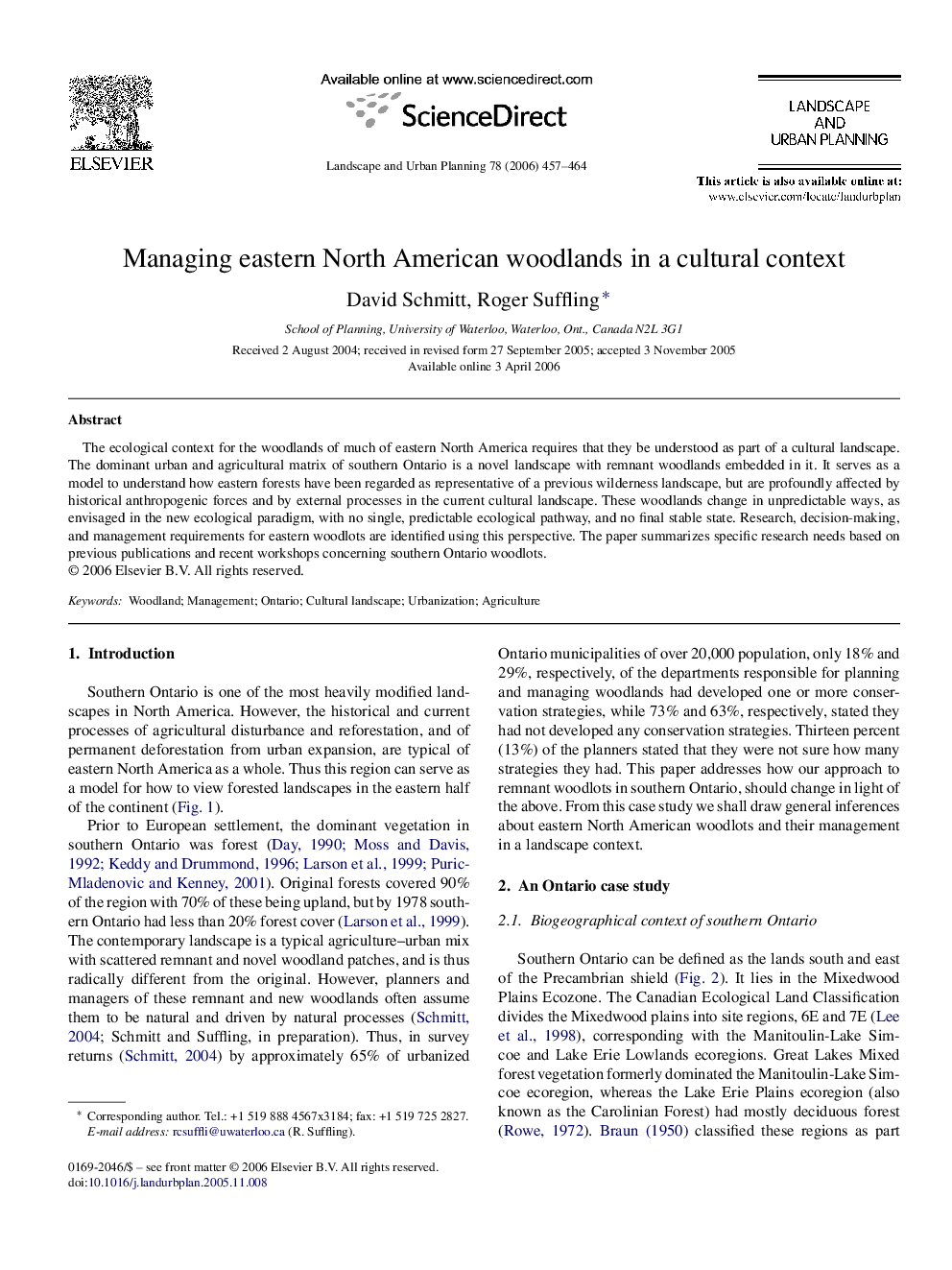| Article ID | Journal | Published Year | Pages | File Type |
|---|---|---|---|---|
| 1050746 | Landscape and Urban Planning | 2006 | 8 Pages |
Abstract
The ecological context for the woodlands of much of eastern North America requires that they be understood as part of a cultural landscape. The dominant urban and agricultural matrix of southern Ontario is a novel landscape with remnant woodlands embedded in it. It serves as a model to understand how eastern forests have been regarded as representative of a previous wilderness landscape, but are profoundly affected by historical anthropogenic forces and by external processes in the current cultural landscape. These woodlands change in unpredictable ways, as envisaged in the new ecological paradigm, with no single, predictable ecological pathway, and no final stable state. Research, decision-making, and management requirements for eastern woodlots are identified using this perspective. The paper summarizes specific research needs based on previous publications and recent workshops concerning southern Ontario woodlots.
Related Topics
Life Sciences
Agricultural and Biological Sciences
Ecology, Evolution, Behavior and Systematics
Authors
David Schmitt, Roger Suffling,
